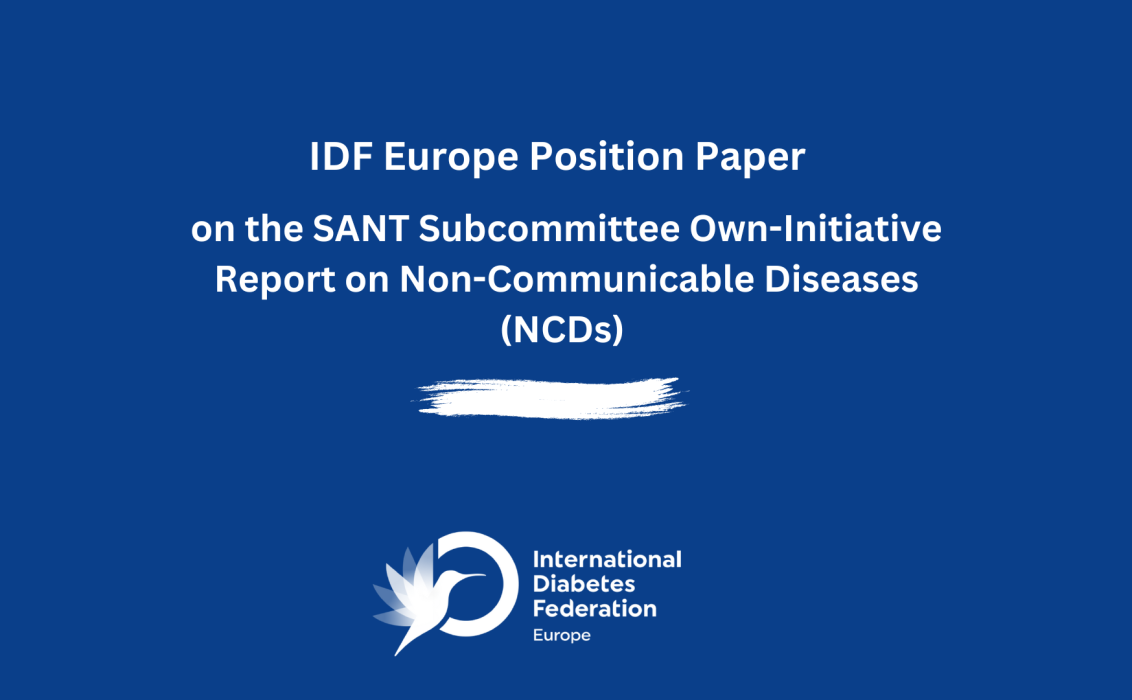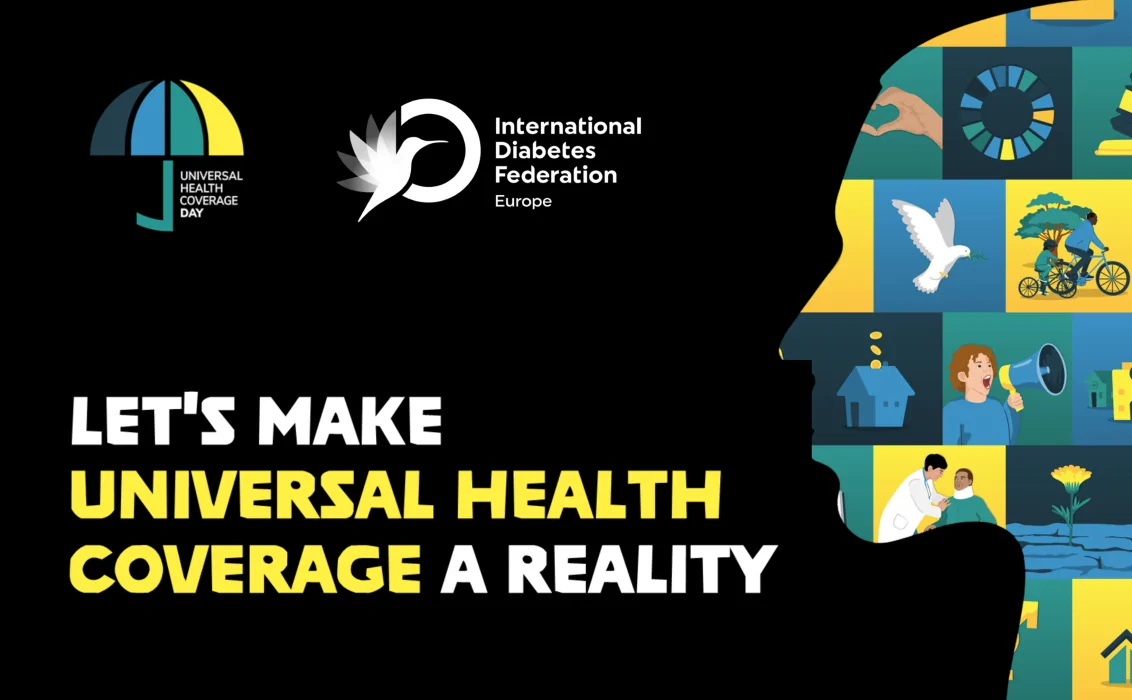On 14 February 2023, the European Parliament (EP) took a significant step towards addressing public health concerns in the European Union (EU) by approving the establishment of the Subcommittee on Public Health (SANT). One of the first actions undertaken by SANT was the initiation of an Own-Initiative (INI) Report on non-communicable diseases (NCDs), drafted by MEP Erik Poulsen (Renew Europe, Denmark). IDF Europe is looking forward to the presentation of the draft report tomorrow at the SANT committee meeting.
IDF Europe fully supports the continued interest and engagement of MEPs in the overall status and specificities of the prevention, management and treatment of NCDs. In recent years, numerous policies and initiatives at the EU level have helped shine a light on the importance of NCD prevention. However, more ambitious actions are needed to reverse the growing number of people living with NCDs, specifically diabetes, and improve people’s quality of life and well-being.
We believe that the high interconnection between some NCDs, such as diabetes, cardiovascular diseases, renal diseases, obesity and mental health requires a holistic and integrated approach, complemented by disease specific priorities for action, taking into account disease progression over the life course. Combatting NCDs is one of the biggest challenges of our times and policymakers are faced with the monumental task of re-designing our health systems that are better equipped to care for people with chronic conditions and are able to withstand the likes of the COVID-19 crisis and bounce back from future shocks. This can be achieved by developing and implementing an NCD prevention and management blueprint, complemented by disease-specific programmes including clear targets, benchmark indicators and a monitoring framework.
IDF Europe position paper on the SANT INI on NCDs provides additional recommendations to support policies and programmes that have the potential of contributing to flattening the NCD curve, reducing costs and inequalities as well as improving the quality of life of Europeans living with NCDs, all the while developing resilient health systems that can effectively prevent, detect and respond to public health threats while maintaining quality routine care and addressing the health needs of the population at all times.
Read our full position paper here.



